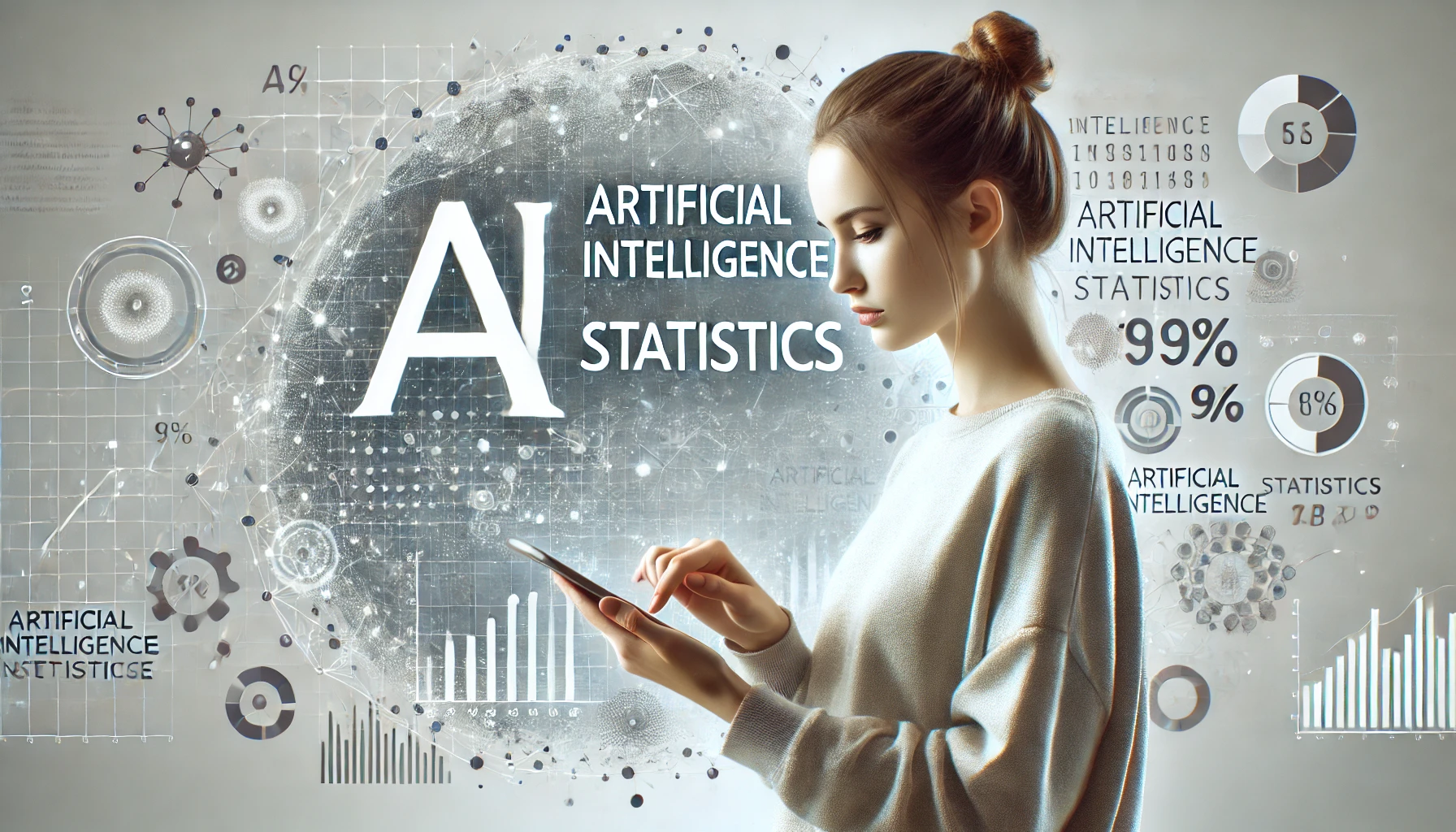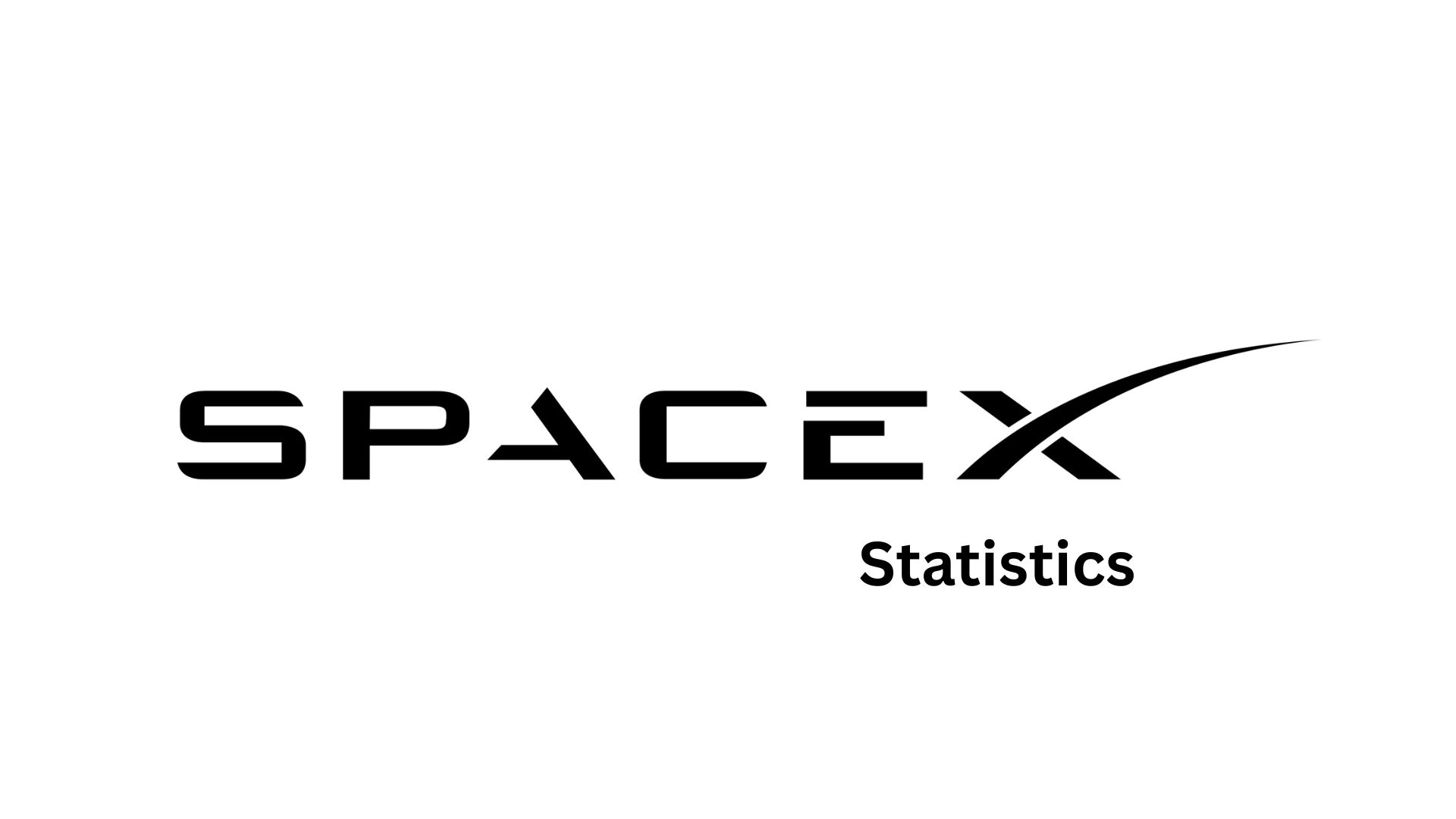Artificial Intelligence Statistics By Market Share, Challenges In Implementation, Revenue And Patents
Updated · Aug 28, 2024

Table of Contents
- Introduction
- Editor’s Choice
- Artificial Intelligence Market Size
- Challenges To AI Implementation
- Generative AI Revenue Worldwide
- Expertise In Generative AI Among Global Organisations
- Machine Learning And AI Patents Worldwide
- Market Share Of Smart Speakers Of AI Companies
- AI Predictions For Worldwide
- Awareness Of AI Usage
- Artificial Intelligence Overview
- AI Adoption By Region
- AI Applications and Use Cases
- Conclusion
Introduction
Artificial intelligence Statistics: Artificial intelligence refers to the logical intelligence exhibited by machines. It is based on intelligence that machines can perceive from their environment and thus use learning techniques. Artificial intelligence has various applications, such as chatbots, speech generation systems, and several interactive events.
Depending on the usage, different AI models have been used. Many techniques have been used for search, mathematical optimization, and formal logic, which can be used related to statistics and operational research. We will go through artificial intelligence statistics to have a holistic understanding.
Editor’s Choice
- As per Artificial intelligence statistics, the market size of AI has increased from USD 93.27 billion in 2020 to USD 202.59 billion in 2022.
- 42% of companies conclude that AI is a business solution that is challenging to comprehend.
- With 41% of the market share, Amazon has the highest proportion involving AI-induced speakers.
- As per Artificial intelligence statistics, the global AI market is valued at USD 142.3 billion in 2023.
- Customer service AI applications were valued at USD 40.2 billion in 2023, with China leading the region.
Artificial Intelligence Market Size

(Reference: Statista.com)
- The AI market has experienced exponential growth in recent years, which is expected to continue.
- As per artificial intelligence statistics, the revenue in AI increased significantly in 2021, from $93.27 billion in 2020 to $202.59 billion in 2022.
- By 2030, the AI market will be predicted to reach $826.73 billion.
Challenges To AI Implementation

(Reference: Statista.com)
Although AI is a very lucrative field for which the sky is the limit in terms of potential, it is essential to note that there are a wide variety of challenges businesses face with AI. Going through artificial intelligence statistics, here are the challenges companies face with AI.
- 42% of companies feel that looking for AI as a business solution is a big challenge.
- 38% of companies find a lack of technological support for AI as a big challenge.
- 32% of companies usually find the storage of skilled AI talent a big issue.
Generative AI Revenue Worldwide

(Reference: Statista.com)
Since the evolution of ChatGPT, generative AI models have developed significantly in recent years.
- In 2021, generative AI intelligence applications developed revenue of $18 billion.
- Since then, the revenue has increased significantly to $37 billion by 2023.
- Based on artificial intelligence statistics, it is predicted that generative AI revenue is expected to reach $1,361 billion.
Expertise In Generative AI Among Global Organisations

(Reference: Statista.com)
- If one refers to artificial intelligence statistics, one would find that 45% of users have some expertise.
- With similar self-assessment, 35% believe they have high expertise, 9% have very high expertise, and 1% have no expertise.
- As a result, it can be said that most of the population has gained expertise in AI to at least some extent.
Machine Learning And AI Patents Worldwide
(Reference: Statista.com)
- As per Artificial intelligence statistics, many patent owners exist in artificial intelligence services.
- In 2022, Baidu has the highest number of patents with 13993.
- Tencent has 2nd highest number of patents in 2022, with 13187.

(Reference: searchlogistics.com)
Based on artificial intelligence statistics, the market share of AI-induced smart speakers has gained significant popularity.
- Amazon has the highest market share, with 28.9%
- Google and Baidu have the 2nd and 3rd most significant market shares, with 19.1% and 13.1%, respectively.
AI Predictions For Worldwide

- As per Artificial intelligence statistics, AI has a significant share of the country's GDP.
- China is expected to generate 26.1% of its GDP with AI.
- UAE and the USA are expected to have GDP contributions of 13.5% and 14.5%.
Awareness Of AI Usage

(Reference: Statista.com)
The general awareness of AI varied among different users.
- As per artificial intelligence statistics, 65% of the general population believes AI is mainly used as voice assistance, compared to 74% of tech executives.
- Secondly, the most popular informative use users find for AI usage among tech executives is natural language processing, with 56%.
- For the general population, the second most common belief about AI usage is drones, with 48%.
Artificial Intelligence Overview
Artificial Intelligence (AI) is one of the most transformative technologies of our time, reshaping industries, economies, and societies worldwide. As AI continues to evolve, its impact on various sectors is increasingly evident, with businesses and governments investing heavily in AI-driven solutions. This report provides an in-depth analysis of Artificial Intelligence Statistics, focusing on the latest numerical data for 2023 and 2024. The information is presented from a market researcher's point of view, highlighting key trends, market dynamics, and financial implications.
Global AI Market Growth
The global AI market has witnessed exponential growth in recent years, driven by advancements in machine learning, natural language processing, and data analytics. 2023 the global AI market was valued at approximately US dollars 142.3 billion, representing a 24.6% increase from 2022. This growth trajectory is expected to continue in 2024, with the market projected to reach US dollars 196.3 billion, marking a 37.9% increase year over year.
AI Adoption By Region
AI adoption is widespread across various industries, with healthcare, finance, retail, and manufacturing sectors leading. In 2023, the healthcare sector accounted for US dollars 26.6 billion of the global AI market, making up 18.7% of the total market share. The finance sector followed closely, with AI investments reaching US dollars 21.3 billion, or 15.0% of the market. Retail and manufacturing sectors contributed US dollars 19.1 billion and US dollars 18.4 billion, respectively, to the AI market in 2023.
In 2024, these industries are expected to increase their AI investments further. The healthcare sector's AI spending is projected to grow to US dollars 35.1 billion, accounting for 20.7% of the global market. The finance sector is anticipated to invest US dollars 29.5 billion, representing 15.0% of the market, while retail and manufacturing are expected to contribute US dollars 24.2 billion and US dollars 23.9 billion, respectively.
AI in North America
North America continues to dominate the global AI market, driven by significant investments from tech giants such as Google, Microsoft, and IBM. In 2023, the North American AI market was valued at US dollars 58.4 billion, accounting for 41.0% of the global market. The United States alone contributed $ 50.7 billion to the North American AI market, representing 86.8% of the region's total AI spending.
In 2024, North America's AI market is projected to reach US dollars 79.2 billion, maintaining its 40.3% global market share. The United States is expected to continue leading the region, with AI investments anticipated to grow to US dollars 69.1 billion, representing 87.2% of North America's AI market.
AI in Europe
Europe is also a significant player in the AI market, with countries like Germany, the United Kingdom, and France leading AI research and development efforts. In 2023, the European AI market was valued at US dollars 33.5 billion, accounting for 23.5% of the global market. Germany was the most significant contributor, with AI investments of US dollars 10.2 billion, followed by the United Kingdom with US dollars 9.1 billion and France with US dollars 7.3 billion.
The European AI market is expected to grow to US dollars 46.8 billion in 2024, maintaining its 23.8% global market share. Germany's AI investments are projected to reach US dollars 14.6 billion, while the United Kingdom and France are expected to contribute US dollars 12.3 billion and US dollars 10.1 billion, respectively.
AI in Asia-Pacific
The Asia-Pacific region is experiencing rapid growth in AI adoption, driven by investments in China, Japan, and South Korea. In 2023, the Asia-Pacific AI market was valued at USD 40.2 billion, accounting for 28.2% of the global market. China led the region with AI investments of US dollars 25.3 billion, Japan with US dollars 7.6 billion and South Korea with US dollars 4.8 billion.
In 2024, the Asia-Pacific AI market is projected to grow to US dollars 56.7 billion, increasing its share to 28.9% of the global market. China's AI investments are expected to reach US dollars 35.9 billion, while Japan and South Korea are anticipated to contribute US dollars 10.3 billion and US dollars 6.7 billion, respectively.
AI in Latin America
Latin America is emerging as a growing market for AI, with Brazil, Mexico, and Argentina leading the region's AI adoption. In 2023, the Latin American AI market was valued at US dollars 6.4 billion, accounting for 4.5% of the global market. Brazil was the most significant contributor, with AI investments of US dollars 2.8 billion, followed by Mexico with US dollars 1.9 billion and Argentina with US dollars 1.1 billion.
The Latin American AI market is expected to grow to US$9.2 billion in 2024, representing 4.7% of the global market. Brazil's AI investments are projected to reach US$4.0 billion, while Mexico and Argentina are expected to contribute US$2.7 billion and US$1.5 billion, respectively.
AI in the Middle East and Africa
The Middle East and Africa (MEA) region is gradually adopting AI technologies, with countries like the United Arab Emirates (UAE), Saudi Arabia, and South Africa leading the way. In 2023, the MEA AI market was valued at US dollars 3.8 billion, accounting for 2.7% of the global market. The UAE led the region with AI investments of US dollars 1.6 billion, followed by Saudi Arabia with US dollars 1.1 billion and South Africa with US dollars 0.8 billion.
In 2024, the MEA AI market is projected to grow to US$5.3 billion, maintaining its 2.7% global market share. The UAE's AI investments are expected to reach US$2.2 billion, while Saudi Arabia and South Africa are anticipated to contribute US$1.5 billion and US$1.1 billion, respectively.
AI Applications and Use Cases
AI is applied across various use cases, from customer service and fraud detection to autonomous vehicles and predictive analytics. In 2023, customer service AI applications accounted for US dollars 18.9 billion in global AI spending, making up 13.3% of the total market. Fraud detection and prevention followed closely, with US dollars 14.7 billion invested in AI-driven solutions, representing 10.3% of the market.
Autonomous vehicles and predictive analytics are also significant areas of AI investment. In 2023, AI in autonomous vehicles accounted for US dollars 12.4 billion, or 8.7% of the global market, while predictive analytics saw US dollars 11.8 billion in AI investments, representing 8.3% of the market.
These applications are expected to see further growth in 2024. Customer service AI spending is projected to reach US dollars 26.4 billion, accounting for 13.4% of the global market. Fraud detection and prevention are expected to grow to US dollars 19.9 billion, maintaining their 10.1% market share. AI in autonomous vehicles and predictive analytics is anticipated to reach US dollars 17.1 billion and US dollars 16.3 billion, respectively.
AI and Workforce Transformation
AI transforms the workforce by automating repetitive tasks, enhancing decision-making, and creating new job opportunities. However, this transformation also raises concerns about job displacement and the need for reskilling. In 2023, approximately 24.2% of businesses reported that AI had led to job displacement, while 33.7% indicated that AI had created new job roles.
By 2024, 28.6% of businesses are expected to experience job displacement due to AI, while 36.9% will report the creation of new job roles. Companies are investing in reskilling and upskilling programs to address the challenges of AI-driven workforce transformation. In 2023, businesses globally spent US dollars 8.2 billion on AI-related reskilling initiatives, which is projected to grow to US dollars 10.5 billion in 2024.
AI in Healthcare
AI's impact on healthcare is profound, with applications ranging from diagnostics and treatment planning to drug discovery and personalized medicine. In 2023, the global AI healthcare market was valued at US dollars 26.6 billion, representing 18.7% of the total AI market. AI-powered diagnostics alone accounted for US dollars 9.2 billion, or 34.6% of the AI healthcare market.
The AI healthcare market is expected to grow to US dollars 35.1 billion in 2024, accounting for 20.7% of the global AI market. AI diagnostics are anticipated to reach US dollars.
12.4 billion, maintaining their 35.3% share of the AI healthcare market.
AI in Finance
The finance industry is one of the early adopters of AI, leveraging the technology for fraud detection, risk management, trading algorithms, and customer service. In 2023, the global AI finance market was valued at US dollars 21.3 billion, representing 15.0% of the total AI market. AI-driven fraud detection alone accounted for US dollars 8.6 billion, or 40.4% of the AI finance market.
In 2024, the AI finance market is projected to grow to US dollars 29.5 billion, maintaining its 15.0% share of the global AI market. AI-driven fraud detection is expected to reach US dollars 11.9 billion, representing 40.3% of the AI finance market.
AI in Retail
AI is revolutionizing the retail industry by enhancing customer experiences, optimizing supply chains, and enabling personalized marketing. In 2023, the global AI retail market was valued at US$19.1 billion, accounting for 13.4% of the total AI market. AI-powered customer experience solutions accounted for US$7.4 billion, or 38.7% of the AI retail market.
In 2024, the AI retail market is expected to grow to US dollars 24.2 billion, maintaining its 12.3% share of the global AI market. AI-powered customer experience solutions are anticipated to reach $ US dollars 9.5 billion, representing 39.3% of the AI retail market.
AI in Manufacturing
AI is driving innovation in manufacturing through predictive maintenance, quality control, and supply chain optimization. In 2023, the global AI manufacturing market was valued at USD 18.4 billion, accounting for 12.9% of the total AI market. Predictive maintenance solutions alone accounted for US dollars 6.8 billion, or 37.0% of the AI manufacturing market.
In 2024, the AI manufacturing market is projected to grow to US dollars 23.9 billion, maintaining its 12.2% share of the global AI market. Predictive maintenance solutions are expected to reach $ US dollars 9.1 billion, representing 38.1% of the AI manufacturing market.
AI in Autonomous Vehicles
The development of autonomous vehicles is one of the most exciting applications of AI, with significant investments from both automotive and tech companies. In 2023, the global AI market for autonomous vehicles was valued at US dollars 12.4 billion, accounting for 8.7% of the total AI market. AI-driven self-driving technology alone accounted for US dollars 8.3 billion, or 66.9% of the AI autonomous vehicles market.
In 2024, the AI market for autonomous vehicles is expected to grow to US dollars 17.1 billion, maintaining its 8.7% share of the global AI market. AI-driven self-driving technology is anticipated to reach US dollars 11.9 billion, representing 69.6% of the AI autonomous vehicles market.
AI in Cybersecurity
AI is becoming critical to cybersecurity strategies, enabling organizations to detect and respond to threats in real-time. In 2023, the global AI cybersecurity market was valued at US dollars 14.2 billion, accounting for 10.0% of the total AI market. AI-driven threat detection solutions alone accounted for US dollars 5.7 billion, or 40.1% of the AI cybersecurity market.
In 2024, the AI cybersecurity market is projected to grow to US dollars 19.2 billion, maintaining its 9.8% share of the global AI market. AI-driven threat detection solutions are expected to reach US dollars 7.9 billion, representing 41.1% of the AI cybersecurity market.
Conclusion
AI's rapid growth and adoption across various industries highlight its transformative potential. With the global AI market projected to reach US dollars 196.3 billion by 2024, businesses and governments must continue to invest in AI-driven solutions to remain competitive. The data presented in this report underscores the significant impact of AI on sectors such as healthcare, finance, retail, manufacturing, and cybersecurity.
As AI continues to evolve, it will undoubtedly shape the future of industries and economies worldwide. However, addressing the challenges associated with AI, such as workforce displacement and ethical concerns, is crucial. Organizations can harness AI's full potential while mitigating its risks by investing in reskilling programs and developing robust AI governance frameworks.
This report on Artificial Intelligence Statistics provides valuable insights for businesses, policymakers, and investors. It helps them navigate the complexities of the AI landscape and capitalize on emerging opportunities. The future of AI is bright, and its impact on the global economy will be profound in the years to come.
Sources
FAQ.
As per Artificial Intelligence statistics, the market is expected to reach $826.73 billion by 2030.
By 2022, Baidu will have the highest number of patents, with 13,993.
By 2030, it is predicted that China’s significant GDP share will come from AI, a staggering 26.1%. Other countries, including the US and UAE, have 14.5% and 13.5% of their GDP from AI.
65% of the general population believes AI is mainly used for voice assistance.

Joseph D'Souza founded ElectroIQ in 2010 as a personal project to share his insights and experiences with tech gadgets. Over time, it has grown into a well-regarded tech blog, known for its in-depth technology trends, smartphone reviews and app-related statistics.










